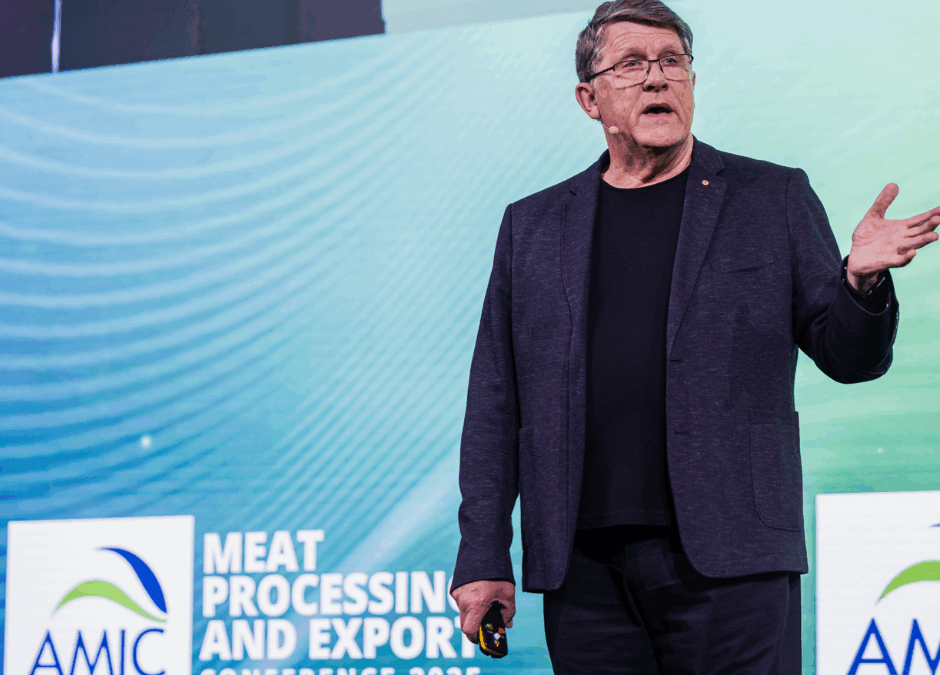At the Australian Meat Industry Council (AMIC) Meat Processing and Export Conference, we heard from someone who doesn’t mince words: Retired Air Vice-Marshal John Blackburn AO. Fighter pilot turned strategic thinker, John has been ringing alarm bells about Australia’s national resilience, or lack thereof, for years. His message? We are dangerously underprepared, and we can’t afford to keep pretending otherwise.
Australia: A lucky country or a complacent one?
John’s presentation pulled no punches. Despite all our wealth and capability, Australia is fragile. We operate on razor-thin margins of supply, depend on overseas manufacturers for everything from fuel to fertiliser, and assume business-as-usual will just continue.
He’s not talking about hypotheticals. Think about the transport supply chain. We import over 90% of our transport fuels, including AdBlue, which quite literally keeps the trucks moving, and our last oil refineries are on track to shut down. We’ve outsourced so much of our capability that a minor disruption, say a shipping bottleneck or trade restriction, could turn into a major food logistics crisis overnight.
Sound extreme? It’s not. It’s already happening in parts of the world.
Agri-food: strong, but not untouchable
Yes, Australia ranks in the top ten globally for food security. And yes, we’re a powerhouse when it comes to meat processing and export. But even our strongest sectors are tethered to fragile systems.
Consider your own supply chain – how many steps rely on offshore inputs, just-in-time delivery, or a single point of failure? If you’re in ag, chances are it’s more than you’d like to admit.
Resilience isn’t a buzzword
John laid out the simple characteristics of a resilient society. They included
▪ Shared awareness ▪ Teamed ▪ Prepared/ mobilised ▪ Risk assessment ▪ Strategy / Plan ▪ Take action.
Sounds simple, but it requires a big shift in mindset from reaction to preparation.
We can’t wait for government to lead every step. In agri-food, we need to be proactive and for our agri-food sector, this means:
- Investing in local capabilities (e.g. manufacturing, fuel security)
- Participating in integrated risk planning – Plan for the ‘what ifs’
- Strengthening supply chain transparency and diversification
- Recognising that food security extends beyond production – it’s about logistics, energy, and people we need to collaborate across sectors.
Because when the trucks stop rolling, it won’t matter how efficient our processing lines are.
What now?
The question isn’t if disruptions will happen. It’s when. And whether we’ve done the work to be ready.
As an industry, we can lead. We’re good at adapting to drought, fire, and trade shocks. Now let’s apply more long-term thinking and stronger collaboration.
At Hardman Communications, we pride ourselves on working right across the across the agri-food supply chain touching on most parts of the industry and its one of the greatest strengths we bring our clients. If you’re curious whether the challenges you’re facing are shared across other parts of the industry and you’re ready to start thinking more strategically about resilience, we’d love to chat. [email protected]
Sue Hardman

